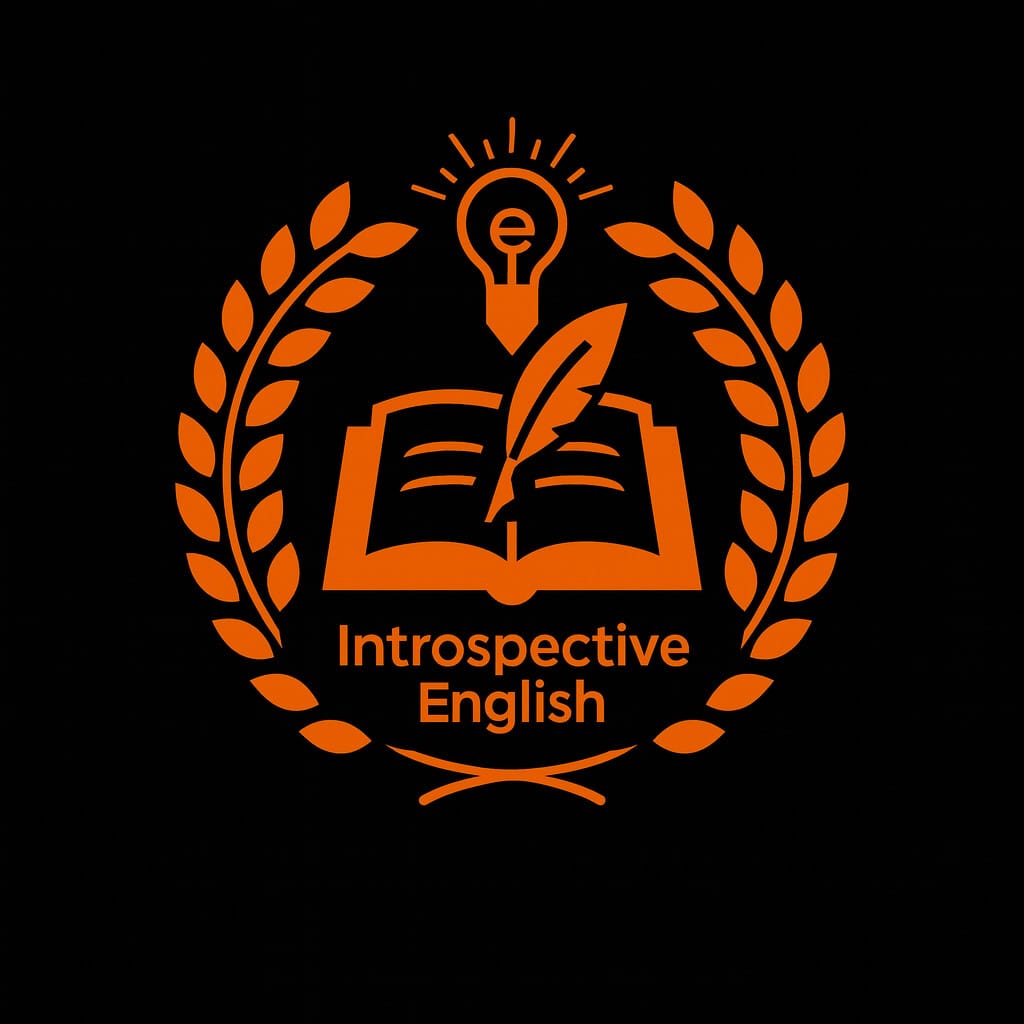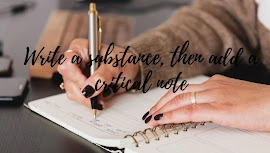

Prepare. Practise. Participate.

Prepare. Practise. Participate.

Substance Writing: Meaning, Format, Examples & Practice
Substance writing is a skill-based academic task that tests a student’s ability to identify and present the central idea of a poem or passage in their own words. This complete guide explains the meaning, rules, format, and examples of substance writing, along with practice questions to help Class XI–XII students and competitive exam aspirants apply their learning confidently. Learn how to write a summary and add a critical note when given an unfamiliar poem or passage in exams. This guide offers structured tips to help students confidently approach unknown literary texts.
✍️ What is Substance Writing?
Substance writing is a form of academic writing in which a student expresses the central idea or core meaning of a given poem or prose passage in their own words, without adding personal opinions or unnecessary details.
The aim of substance writing is not to retell the entire text, but to present its essential thought, theme, or message in a clear, concise, and logical manner. It tests a student’s ability to understand, interpret, and summarise an unfamiliar literary text accurately.
In examinations, substance writing is commonly asked from:
Unknown poems
Unseen prose passages
Students are expected to:
Identify the main idea
Maintain the original meaning
Use simple, precise language
Write in a neutral and objective tone
Substance writing usually covers about one-third (approximately 30–35%) of the original text and is written in paragraph form, using third-person narration.
✍️Purpose of Substance Writing in Exams
The purpose of substance writing in examinations is to test a student’s ability to understand and interpret an unfamiliar literary text and express its central idea clearly and accurately in their own words.
Examiners use substance writing to assess whether a student can:
Identify the main theme or core message of a poem or passage
Distinguish important ideas from minor details
Demonstrate comprehension rather than memorisation
Use simple, clear, and precise language
Maintain objectivity and neutrality without personal opinions
Organise ideas in a logical and coherent manner
Substance writing also evaluates a student’s skill in:
Summarising information effectively
Paraphrasing without distorting meaning
Responding confidently to unseen texts
In competitive and board examinations, this question helps examiners judge a student’s critical reading ability, linguistic competence, and analytical clarity—all essential skills for higher academic study.
✍️Rules of Substance Writing of Any Unknown Poem
- Read the poem several times before you write.
- Understand the poet’s emotions, ideas, and perspective to develop a central theme.
- Mark unfamiliar words or phrases and try to infer their meanings.
- Identify the speaker of the poem and the intention of the speaker.
- Understand the context and possible time period in which the poem was written.
- Use approximately 35% of the total word count of the original poem in your summary.
- Summarize in your own words, using third-person pronouns and avoiding direct speech.
✍️Rules of Critical Note of Any Unknown Poem
⮚ Understand the overall structure, genre, language, and style of the poem.
⮚ Understand the tone, and rhyme scheme of the poem
⮚ Look for figures of speech (simile, metaphor, alliteration, etc.).
⮚ Detect intertextual references (connections to other poems or traditions).
🔗 Related Post: Let’s Know About Types of Poems, Their Tones and Meters
✍️What to Do Before Writing the Substance of Any Unknown Passage
⮚ Read the passage thoroughly multiple times.
⮚ Note and understand unknown vocabulary in context.
⮚ Identify the speaker and the central topic.
⮚ Use third-person narration and avoid direct speech.
⮚ Keep your summary to about 35% of the original passage.
⮚ Express both facts and emotions in your own words.
🧠 What to Do Before Writing the Critical Note of Any Unknown Passage
⮚ Understand the context and purpose of the passage.
⮚ Identify the point of view and the voice of the speaker.
⮚ Classify the genre and type of discourse (descriptive, narrative, reflective, etc.).
⮚ Analyze the structure, style, and figurative language used.
🔗 Related Post: Let’s Know About Prose and Its Types and Structures
✍️Format of Substance Writing
Sample Exercise – Analyze the Following Poem
“Under the greenwood tree who loves to lie with me,
And turn his merry note
Unto the sweet bird’s throat
Come hither, Come hither, Come hither!
Here shall he see
No enemy
But Winter and rough weather.
Who doth ambition shun
And loves to live i’ the sun,
Seeking the food he eats,
Come hither, Come hither, Come hither!
Here shall he see
No enemy
But Winter and rough weather.”
✨ Substance of the Poem
In this pastoral poem, the poet invites people to experience the tranquil beauty of nature. He contrasts rural life with city life, highlighting both the benefits and challenges of each. In the forest, people can sing cheerful songs, as freely and sweetly as birds, enjoying relaxation and serenity.
The poet acknowledges that while rural life in the forest may bring difficulties—such as the discomforts of winter and harsh weather—it lacks the betrayal, conflict, and challenges often found in city life. According to the poet, if people can let go of their material ambitions and desires, they can find peace and contentment in nature’s simplicity.
In the forest, one must accept whatever food nature provides, encouraging a sense of gratitude for the gifts of the earth. In return, people can experience true happiness and appreciate the peaceful moments that nature offers, akin to paradise.
🧐 Critical Note on the Poem
Genre and Form:
This is a pastoral poem that is subjective by nature. It consists of two stanzas of eight lines each.
Context and Setting:
It is a fine specimen of pastoral poetry. It introduces a wide range of facts about rural life. In this poem, the speaker glorifies the simplicity and serenity of the forest and presents a contrast between city life and rural life.
Imagery and Symbols:
It includes symbols such as birds (freedom), the sun (life), and “winter and rough weather” (challenges of rural life vs. man-made conflict).
Poetic Devices:
This poem features alliteration, repetition (“Come hither”), and inversion to emphasize key themes.
Language and Style:
It is marked by personal touches and vivid descriptions of the forest. Both the first stanza and second stanza end with an optimistic note about rural life. It is written in lucid and simple language. All words are well-chosen. It illustrates highly philosophical thoughts about the serene beauty of rural life as well as the chaos and complication of city life.
Rhyme Scheme:
The rhyme scheme of the poem is abbcaac in the first stanza and ddecaac in the second stanza.
Mood and Tone:
The tone of the poem is peaceful and optimistic, idealizing nature as a refuge.
Intertextuality and Influences:
This poem celebrates pastoral life, reminiscent of William Wordsworth’s glorification of nature in The World is Too Much with Us. It also recalls John Keats’s contrasting depiction of urban and rural life in To One Who Has Been Long in City Pent.
Conclusion:
The poem appreciates the charming beauty of rural life and criticizes the struggles of modern society, which is full of enemies disguised as competitors. It supports the idea that rural life is more peaceful and fulfilling than city life.
Explore Unknown Literature: Tips for Substance Writing & Analysis
📝 Sample Exercise – Analyze the Following Passage
“There were autumn mornings, the very time of year when kings of old went forth to conquest and I never stirring from my little corner in Calcutta, would let my mind wander over [the] whole world. At the very name of another country, my heart would go out to it, and at the sight of a foreigner in the streets I would fall to weaving a network of dreams—the mountains, the glens and the forest of his cottage in this setting, and the free and independent life of faraway wilds. Perhaps the scenes of travel conjure themselves up before me, and pass and repass in my imagination all the more vividly, because I lead such a vegetable existence, that a call to travel would fall upon me like a thunderbolt.”
✨ Substance of the Passage
On autumn mornings, when ancient kings embarked on conquests, the speaker remains confined to his small corner in Calcutta, letting his mind wander across the world. His monotonous life fuels a strong desire for travel. The mere mention of another country, or the sight of a foreigner on the street, leads him to weave vivid dreams of distant landscapes, mountains, and the free life of the wilderness. Despite this deep yearning, the idea of an actual journey seems as sudden and overwhelming as a thunderbolt.
🧐 Critical Note on the Passage
Genre:
This is a descriptive and reflective passage, exploring imagination and longing.
Author’s Approach:
The passage is highly introspective, offering insights into the speaker’s inner world.
Context and Central Theme:
The passage captures the tension between the dream of travel and a static reality, revealing a yearning for freedom.
Language, Style, and Form:
Written in simple, first-person narration, the passage contains powerful imagery and emotional depth.
Ornamental and Rhetorical Language:
The passage includes metaphors like “vegetable existence” and similes like “a thunderbolt”, which enrich its literary quality.
Imagery and Symbols:
The mountains, glens, and forests symbolize freedom, while “vegetable existence” symbolizes stagnation.
Tone:
The tone is wistful and imaginative, highlighting the contrast between desire and inaction.
Intertextuality:
The passage is comparable to Pather Panchali, where imagination becomes a means of escape.
Striking Expression:
A striking expression in the passage is:
“A call to travel would fall upon me like a thunderbolt”
This captures the emotional core of the piece.
✅ Conclusion
Mastering substance writing and critical analysis of unknown literary passages equips students to respond confidently in exams. Whether analyzing a poem or prose, the key lies in structured understanding, imaginative interpretation, and clear expression.
📢 Disclaimer:
This content is created solely for educational and informational purposes. It draws upon publicly available educational materials, literary texts, and the author’s own interpretation. All summaries, analyses, and explanations are original and intended to support learning. No copyright infringement is intended.